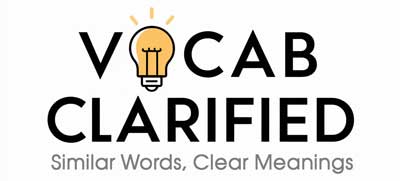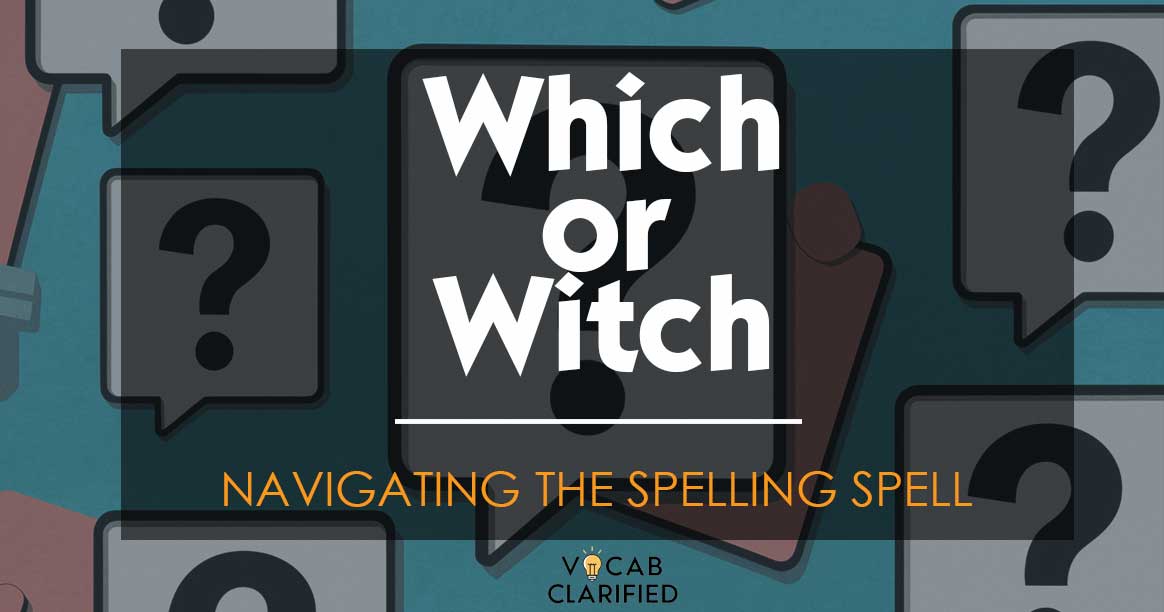Ever found yourself puzzled over whether to write “which” or “witch”? You’re not alone. These two words sound exactly the same but have entirely different meanings and usages. Misusing them can lead to confusion or even unintended humor in your writing.
Let’s explore the differences between “which” and “witch” to ensure you cast the right word in your sentences.
Understanding Which And Witch
Which: Definition and Usage
“Which” is typically used as a pronoun or determiner in questions and relative clauses. It is used to ask or specify one or more people or things from a definite set.
For example:
- Interrogative Pronoun: “Which color do you prefer, blue or green?”
- Relative Pronoun: “The book which you lent me was fascinating.”
In these cases, “which” helps to identify or provide more information about a particular item or group.
Witch: Definition and Usage
Contrastingly, “witch” is a noun often applied in contexts involving folklore, fantasy, or historical references. It stands for a person, typically a woman, who is believed to have magical powers.
For instance:
- Folklore Context: “The witch brewed a magical potion in her cauldron.”
- Historical Reference: “During the Salem trials, many were accused of being witches.”
“Witch” can also be used metaphorically to describe someone who is perceived as mean or spiteful.
Side-by-Side Comparison
To further clarify the differences and help you decide which to use, here’s a side-by-side comparison:
| Aspect | Which | Witch |
| Definition | A pronoun/determiner used to ask or specify choices | A noun referring to a person with magical powers |
| Common Usage | “Which route should we take to the city?” | “The fairy tale featured an evil witch.” |
| Key Differences | Used in questions and clauses to specify choices | Refers to a mythical or magical person |
When deciding between “which” and “witch,” consider the context of your sentence. If you’re forming a question or relating information about a specific item, “which” is generally the preferred term.
However, if you’re referring to a person with magical abilities or discussing folklore, “witch” is the correct choice. Remember, the best choice often depends on the grammatical role and the subject matter of your sentence.
Everyday Usage Examples
Understanding how “which” and “witch” fit into everyday language can help solidify their proper usage. Here are some practical examples:
- Which:
- Making Choices: “Which movie would you like to watch tonight?”
- Specific Identification: “She couldn’t remember which key opened the door.”
- Offering Options: “Which of these desserts would you recommend?”
- Witch:
- Storytelling: “The children dressed up as a witch and a wizard for Halloween.”
- Literature: “She read a novel about a young witch discovering her powers.”
- Metaphorical Use: “Some called her a witch because of her uncanny intuition.”
Conclusion
Distinguishing between “which” and “witch” is essential for clear and accurate communication. “Which” serves as a pronoun or determiner used in questions and relative clauses to specify choices or items. In contrast, “witch” is a noun referring to a person with magical powers, commonly found in folklore and fantasy contexts.
By paying attention to the context and function of these words in your sentences, you can confidently choose the correct term and enhance the clarity of your writing.

